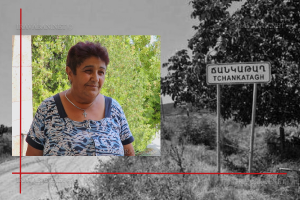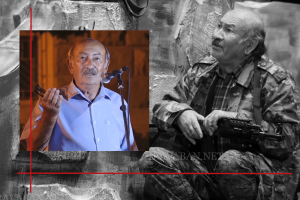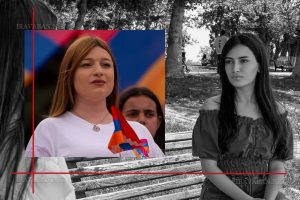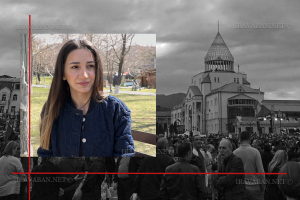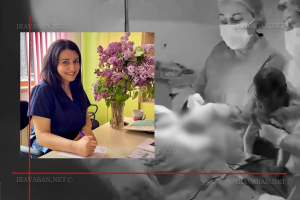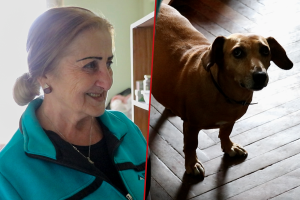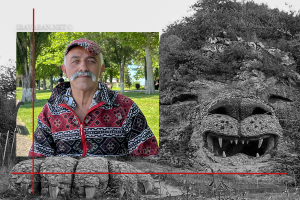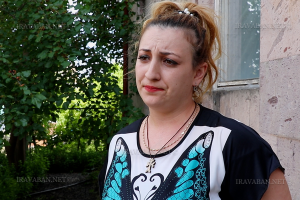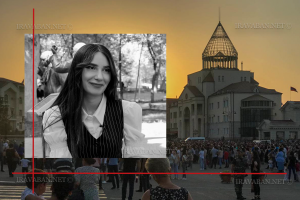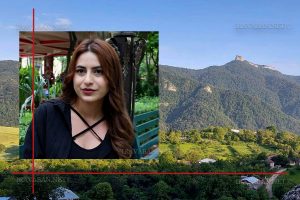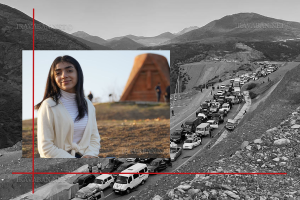Tsovinar Poghosyan, who was forcibly displaced from the occupied Republic of Artsakh, told in the framework of “Artsakh: Armenian Genocide 2023. Stories of Survivors” documentary project of Iravaban.net that her family lived in Nor Ghazanchi village of Martakert region.
“My youngest son Emil was born on 7 July. I went through many difficulties. There was no fuel to move from Martuni to Stepanakert. We asked the Mayor, he provided fuel, and we left. When my child was born, the difficulties increased. It was extremely difficult to find formula milk, no diapers. The shops were completely out of hygiene items and baby food. Well, we didn’t break down yet; we still struggle that everything would be fine. My eldest daughter started first grade this year, it was very difficult to get school supplies. We found it from the children’s notebooks of last year, cleaned it and copied it for the whole class. We struggled against everything: in the queues for bread, in the queues for vegetables, I left my children at home; I went so that at least I could buy bread. We were sure that after all this it will be very good. We did not imagine that all this would happen,” she said.
Our interlocutor remembers how the enemy unleashed another aggression on September 19.
“I was at home, we were sitting in the yard, and we went into the house with my daughter so that she could eat bread. At that moment, 3 of my children were at home, and two were in kindergarten. Suddenly, we heard the sound of bombs, and our house was close to their positions. The chandelier in the house broke, fell, and the wardrobes were broken. There was no way I to make a call, there was no connection. I made the children lie on the ground. After 20 minutes, people called me from the store, there was a basement there. I hugged my children and ran there. We stayed in the basement for 3 days. There was no water, no light; people were lying on the damp floor. As soon as the war started, the water was cut off. My cousin’s wife went home under the bombings, there was flour, and she baked bread and brought it for us to eat. In the basement, we were again sure that this was not the end,” Tsovinar says.
She tells that when they left for Stepanakert, they met Azerbaijanis on the way.
“There was a turning point, we suddenly appeared at their place, we didn’t understand how it happened, and we were surprised. There were about 50-60 people standing there, they even took photos, after that they disseminated the photos. There were no Russian peacekeepers, only they. We passed by them, came again and met them in the second place, already closer to Stepanakert. It was the same situation. They asked: why are you moving, stay, live here? And we said that we were going to Stepanakert,” Tsovinar said.
Our interlocutor said that they got 10 liters of gasoline somehow, fill it in 4 cars and left for Armenia. They traveled for 38 hours.
Tsovinar said that at the moment her husband is not working. It is still not clear what they should do. They somehow found a house in Yerevan; the rent is 250 thousand drams. They demanded 2 months’ rent and a deposit, which they could not pay.
“I thought that there would be no war, as the Russian peacekeepers were there. I was convinced in it, but in fact they were nothing in this case. How could a child be slaughter or people killed when the Russian peacekeepers were standing there, so why were you there? That is why we returned to Artsakh, because we were sure that everything would be normal, that we had a protector. We were sure that it would be normal, we have a protector, and that they would intervene in any matter, but in fact they did not intervene. As soon as the war started, when we were in the basement, 2 Russian peacekeepers came and said that everything is normal, everything will end, so we should not be afraid,” she said.
“Artsakh: Armenian Genocide 2023. Stories of Survivors” documentary project of Iravaban.net is aimed at collecting the memories and testimonies of citizens forcibly displaced from Artsakh occupied by Azerbaijan, about the genocide of the Armenians of Artsakh committed by Azerbaijan, atrocities, the days of war, the path of deportation, etc.
Iravaban.net seeks help from citizens who will voluntarily agree to translate materials into different languages: Russian, English, French, Arabic, Persian, Turkish, Georgian, Chinese…
You can write to our e-mail address at: [email protected]
To donate for realization of the project: https://iravaban.net/become-a-supporter
Details in the video.
Hasmik Sargsyan

